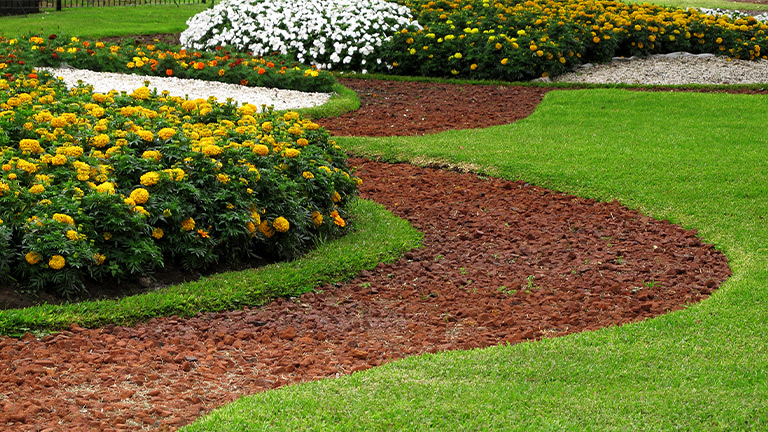The Right Mulch For Your Garden

Mulching is an important part of gardening as it helps to improve soil health, regulate soil temperature, and suppress weed growth. Choosing the right mulch for your garden can be a confusing task as there are many different types of mulch materials available. In this blog, we'll discuss how to choose the right mulch for your garden based on your needs and preferences.
Consider the Purpose of Mulching - The first step in choosing the right mulch for your garden is to consider the purpose of mulching. Do you want to improve soil health? Suppress weeds? Enhance the aesthetics of your garden. Different types of mulch are better suited for different purposes, so it's important to identify your needs before making a selection.
Types of Mulching Materials - There are two main types of mulching materials: organic and inorganic.
Organic Mulch: Organic mulch is made up of natural materials that will break down over time and add organic matter to the soil. Examples of organic mulch include wood chips, leaves, grass clippings, straw, and compost. Organic mulch is an excellent choice if you want to improve soil health, retain moisture in the soil, and suppress weed growth. However, it may attract pests like slugs or snails, and it will need to be replenished every year.
Inorganic Mulch: Inorganic mulch is made up of materials that won't break down over time, such as gravel, pebbles, or plastic. Inorganic mulch is a good choice for suppressing weeds, regulating soil temperature, and enhancing the aesthetics of your garden. However, it doesn't add organic matter to the soil, so it won't improve soil health, and it can be difficult to remove once it's in place.
Consider Your Garden's Needs - In addition to considering the purpose of mulching and the type of mulching material, you should also consider your garden's needs. For example, if you have acid-loving plants like blueberries or azaleas, you may want to choose a mulch that will acidify the soil, such as pine needles. If you have a vegetable garden, you may want to choose a mulch that won't attract pests, such as straw or grass clippings. If you have a sloped garden, you may want to choose a mulch that will help prevent erosion, such as wood chips or gravel.
In conclusion, Choosing the right mulch for your garden requires careful consideration of the purpose of mulching, the type of mulching material, and your garden's needs. By selecting the right mulch for your garden, you can improve soil health, regulate soil temperature, suppress weed growth, and enhance the aesthetics of your garden.